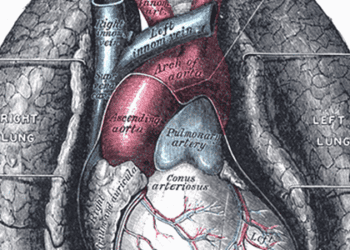Prophylactic antibiotics in breast cancer surgery significantly reduces infection in overweight and obese patients
Image: CC/MTSofan
Key study points:
1. Prophylactic administration of antibiotics preoperatively was found to significant reduce rates of surgical site infections following breast cancer surgery by 65%.
Primer: The most common perioperative complication following breast surgery is surgical site infection (SSI). This complication leads to potentially significant morbidity and mortality, worse cosmetic outcomes, and added costs in the form of extended hospital stays and readmissions. Under-dosing of antibiotic prophylaxis and obesity have been associated with SSI. Previous studies have shown antibiotic prophylaxis as an effective tool at preventing SSI, especially when targeted to highest risk individuals, but a randomized controlled trial has yet to be performed. This is the first of such a trial to examine the efficacy of antibiotic prophylaxis in obese women undergoing breast cancer surgery.
Background reading:
- Surveillance, control, and prevention of surgical site infections in breast cancer surgery: A 5-year experience.
- Prevention of surgical site infection after breast cancer surgery by targeted prophylaxis antibiotic in patients at high risk of surgical site infection.
This [phase IV, randomized parallel-group] study: included 369 overweight or obese women (BMI ≥ 25) undergoing surgery for early stage breast cancer at a single institution who randomly assigned to either receive antibiotic prophylaxis (1g IV ampicillin-sulbactam) or nothing. Primary outcome was SSI rates up to 30 days post-operatively. The rate of infection was 4.8% in the treatment group versus 13.7% in the control group (P = .002). There were no adverse reactions to antibiotics administered. Costs related to SSI in the control group were also significantly elevated relative to the group receiving prophylaxis.
In sum: Despite breast cancer surgery being regarded as a ‘clean’ procedure, surgical site infections remain a serious problem causing significant morbidity, worsened cosmetic outcomes, and increased medical costs. According to this study, having a BMI ≥ 25 puts a woman a four-fold increased risk for developing a SSI. This randomized, controlled trial was able to definitely demonstrate that administering prophylactic antibiotics preoperatively was able to significantly decrease SSI rates by 65% in this group of women undergoing breast cancer surgery. The main limitation to this study was that the control arm had a significantly higher rate of preoperative biopsies. Thus, preoperative biopsy cannot be excluded as a potential confounder, although the study authors do offer a previous published study that showed biopsy to not be a significant risk factor for SSI in breast cancer surgery.
Click to read the study in Annals of Surgery
By [AH] and [MS]
© 2012 2minutemedicine.com. All rights reserved. No works may be reproduced without written consent from 2minutemedicine.com. Disclaimer: We present factual information directly from peer reviewed medical journals. No post should be construed as medical advice and is not intended as such by the authors or by 2minutemedicine.com. PLEASE SEE A HEALTHCARE PROVIDER IN YOUR AREA IF YOU SEEK MEDICAL ADVICE OF ANY SORT.




